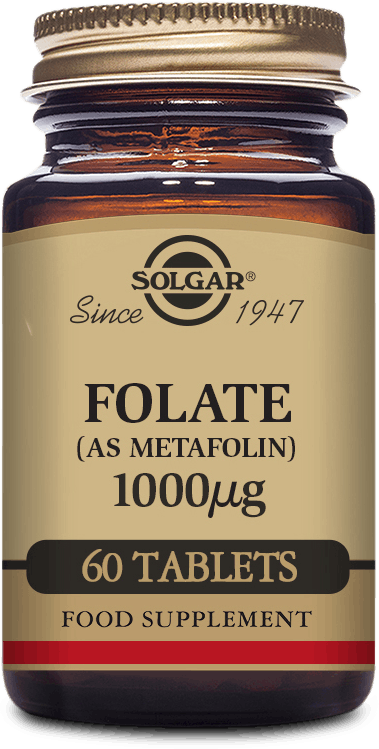Vitamin B9 Folate/Folic Acid
Vitamin B9, commonly known as folate (natural form) or folic acid (synthetic form), is a water-soluble nutrient vital for DNA synthesis, red blood cell formation, and cellular growth. It plays a critical role in early pregnancy by preventing neural tube defects like spina bifida, with decades of research confirming its effectiveness. Folate is found naturally in leafy greens and legumes, while folic acid is used in supplements and fortified foods due to its stability. Emerging studies also explore its potential links to cardiovascular health and cognitive function, though findings remain nuanced.
Key Facts
- Adequate folic acid intake before and during pregnancy reduces neural tube defect risks by up to 70%.
- Adults require 400 mcg daily, rising to 600 mcg for pregnant individuals.
- Natural folate sources include spinach, broccoli, lentils, and citrus fruits.
- Deficiency can cause megaloblastic anaemia, fatigue, mouth ulcers, and cognitive issues.
- Excess folic acid may mask vitamin B12 deficiency, delaying diagnosis of neurological damage.
- Fortified cereals and bread are key dietary sources in regions with mandatory folic acid programmes.
What does the research say about vitamin B9 and its function in the body?
Vitamin B9 supports DNA synthesis, cell division, and red blood cell production. Research highlights its non-negotiable role in preventing neural tube defects when taken pre-conception. Studies also suggest it aids homocysteine metabolism, potentially lowering stroke risk, though evidence for heart disease prevention is mixed.
What are the primary food sources of vitamin B9?
Natural folate occurs in dark leafy greens (spinach, kale), legumes (lentils, chickpeas), and citrus fruits. Fortified foods like breakfast cereals and bread provide folic acid, which is more easily absorbed. Liver and eggs also contain smaller amounts but may not suit vegetarian diets.
How can I supplement vitamin B9?
Most people meet needs through diet, but supplements (400–600 mcg daily) are advised for pregnancy. Folic acid tablets are common, while methylfolate (5-MTHF) suits those with genetic variants affecting folate metabolism. Intravenous options exist for severe deficiencies.
What are the main symptoms of vitamin B9 deficiency?
Early signs include fatigue, pale skin, and mouth sores. Prolonged deficiency leads to megaloblastic anaemia, characterised by abnormal red blood cells, and neurological symptoms like tingling or memory lapses. At-risk groups include those with alcohol use disorder or malabsorption conditions.
Are there any known side effects of supplementing vitamin B9?
High doses (over 1,000 mcg) may mask B12 deficiency, risking irreversible nerve damage if untreated. Some studies associate long-term excess with accelerated cognitive decline, though causality isn’t confirmed. Stick to recommended doses unless medically advised.
How long does it take to see the benefits of vitamin B9 supplementation?
Blood levels improve within weeks, but neural tube defect prevention requires supplementation at least one month before conception. Correcting anaemia may take 3–6 months, depending on deficiency severity.
What should consumers look for on the supplement label when supplementing vitamin B9?
Opt for "400 mcg folic acid" for general use or "methylfolate" if you have an MTHFR gene mutation. Avoid products with unnecessary additives, and check for third-party testing seals to ensure quality.
Can vitamin B9 interact with medications?
Yes. Folic acid may reduce methotrexate’s efficacy in cancer or rheumatoid arthritis treatment. Conversely, anti-seizure drugs like phenytoin can lower folate levels, requiring careful monitoring. Always consult a GP before combining supplements with prescriptions.
Is vitamin B9 beneficial for heart health?
Research shows mixed results. While folate lowers homocysteine (a stroke risk factor), trials haven’t consistently proven cardiovascular disease prevention. However, populations with low baseline folate may see stroke risk reduction with supplementation.
What’s the difference between folate and folic acid?
Folate refers to natural forms in foods, while folic acid is the synthetic version in supplements and fortified foods. The body converts folic acid into active folate, but up to 40% of people have genetic variants slowing this process, making methylfolate a better option for some.
Sources




